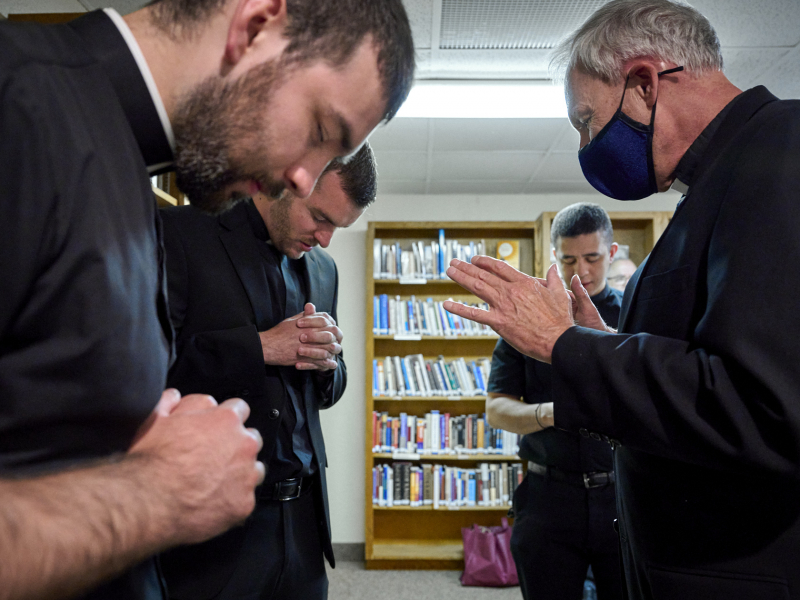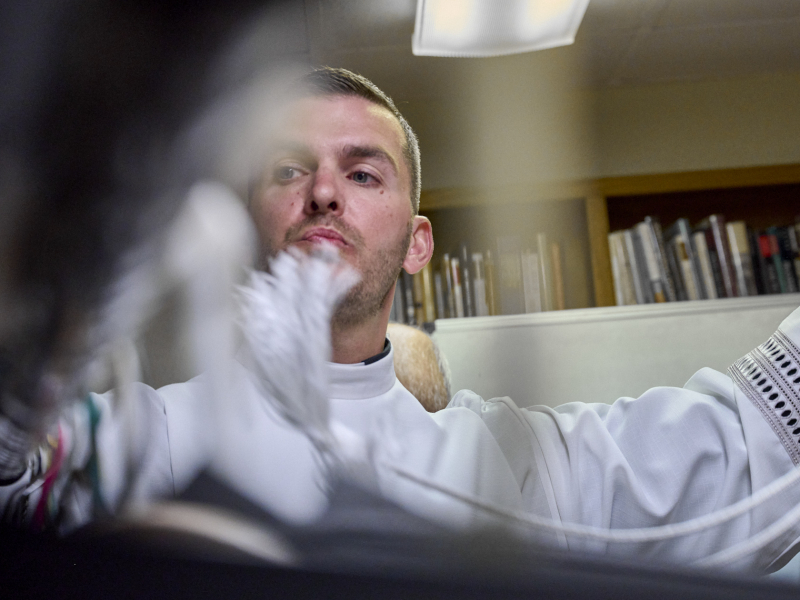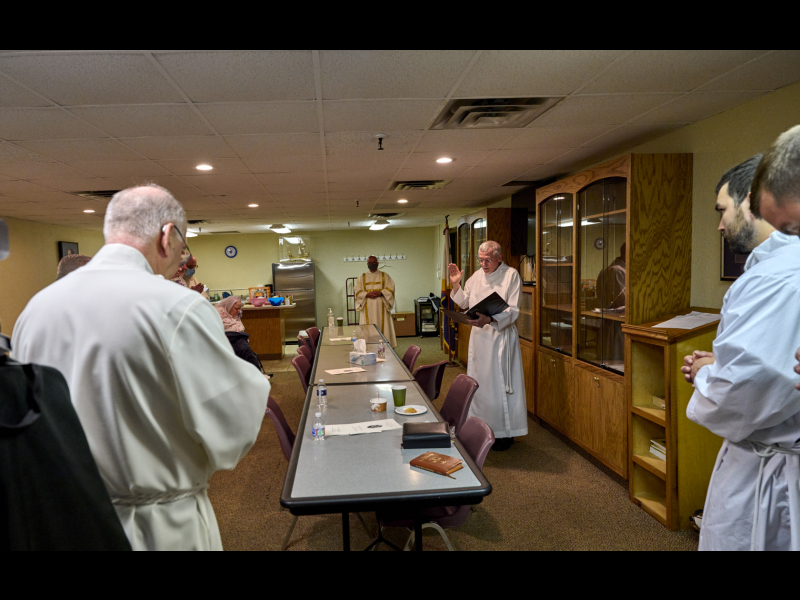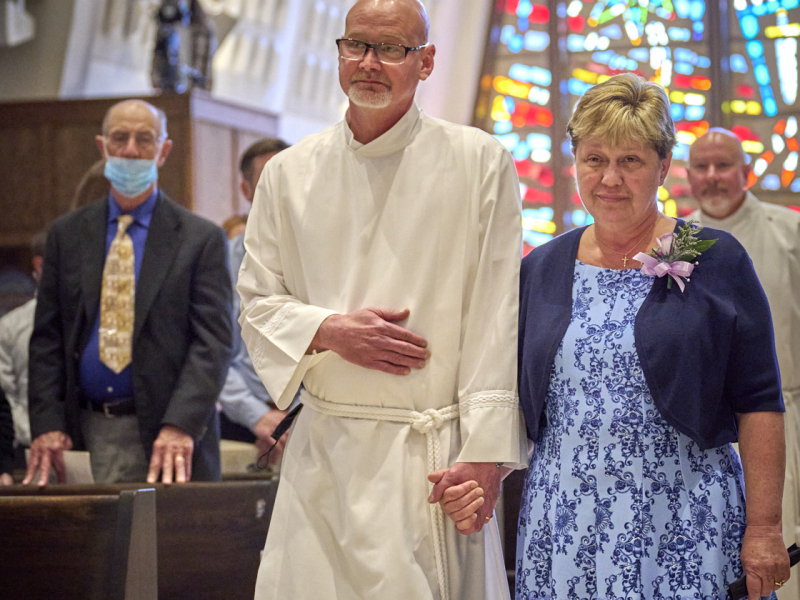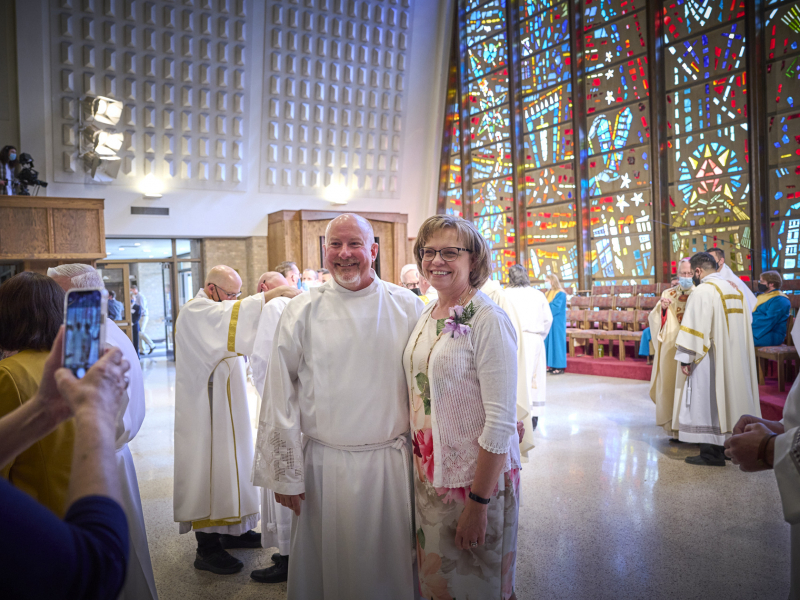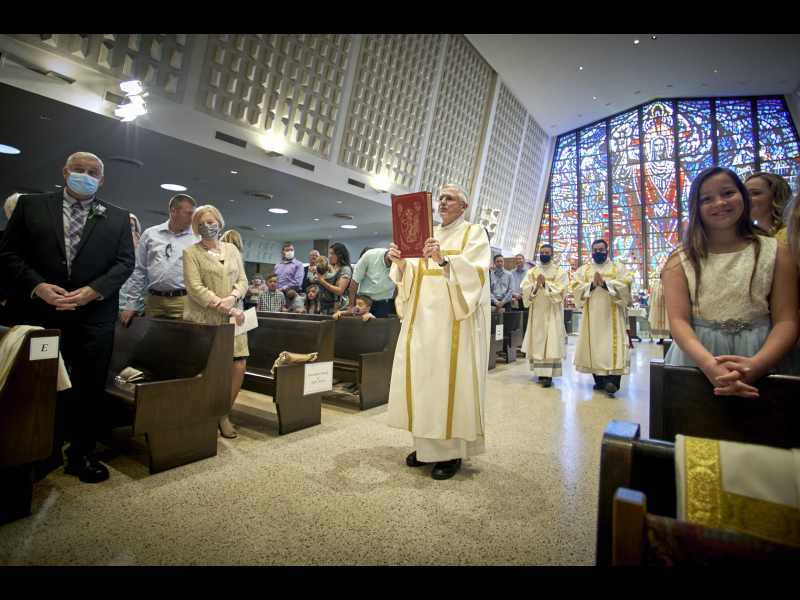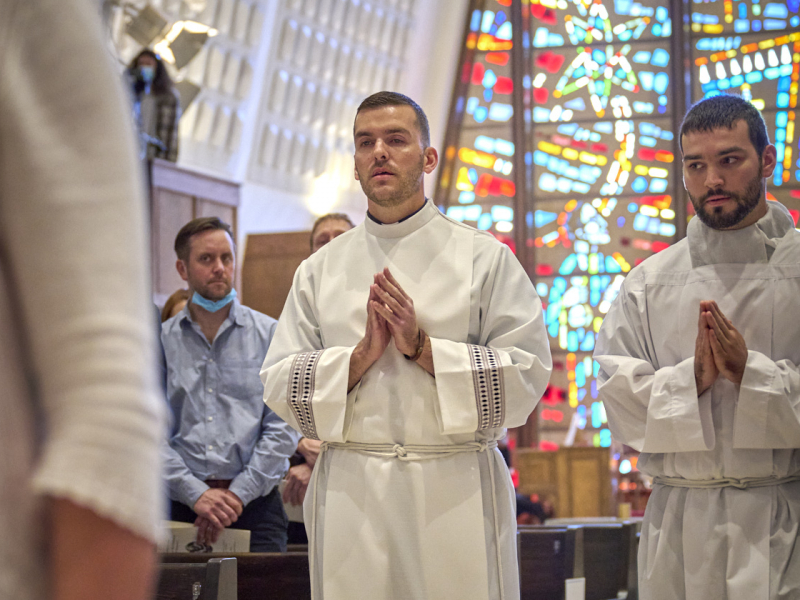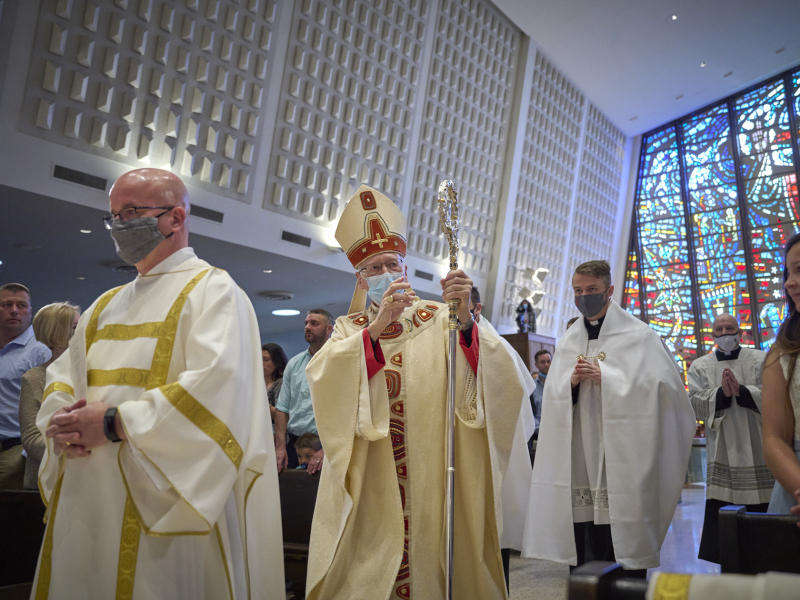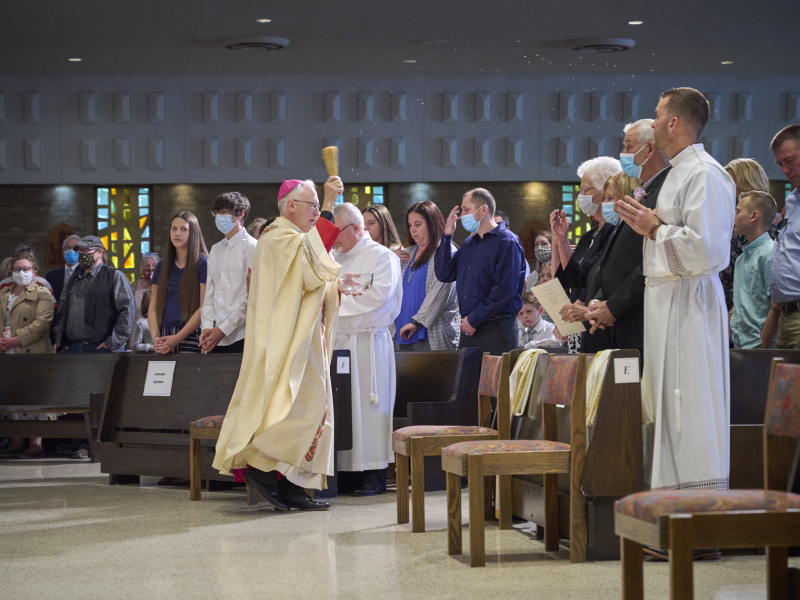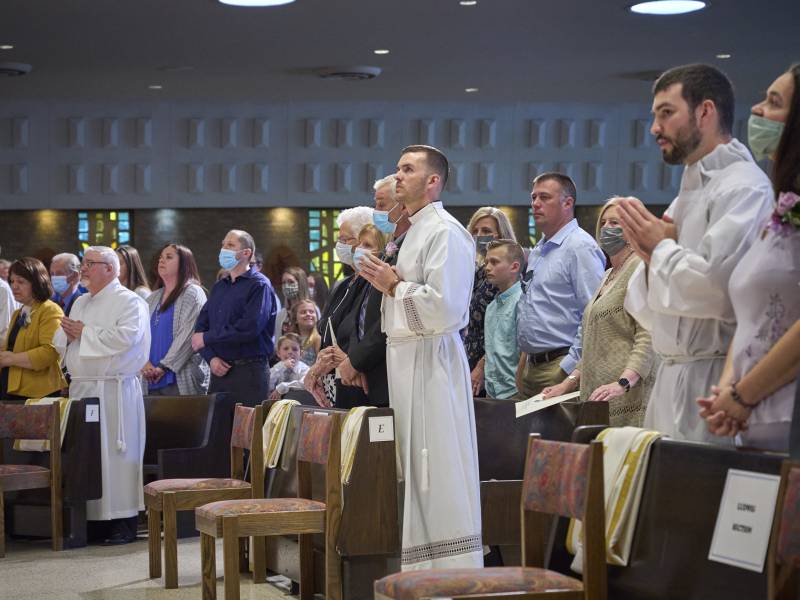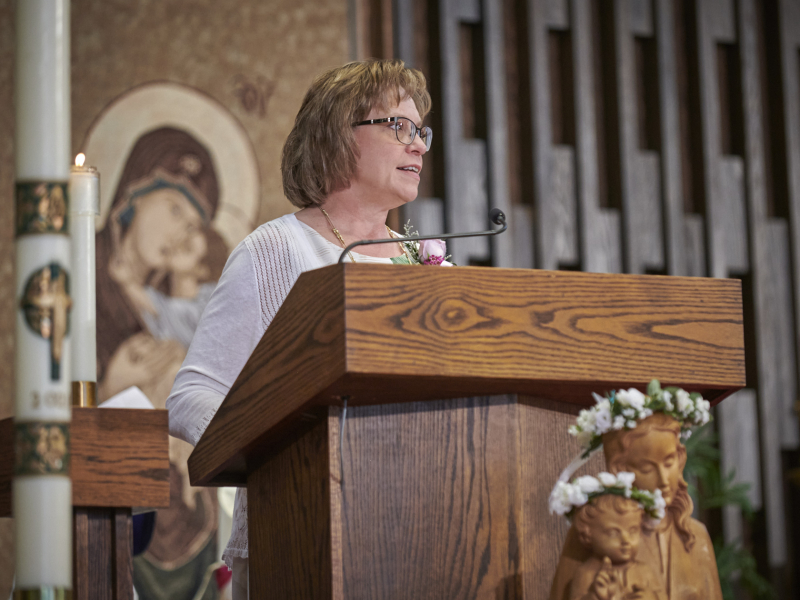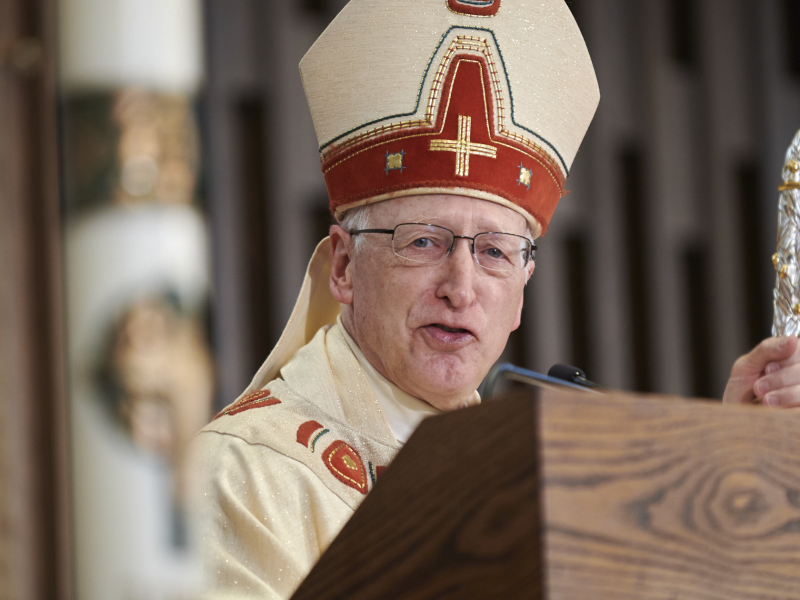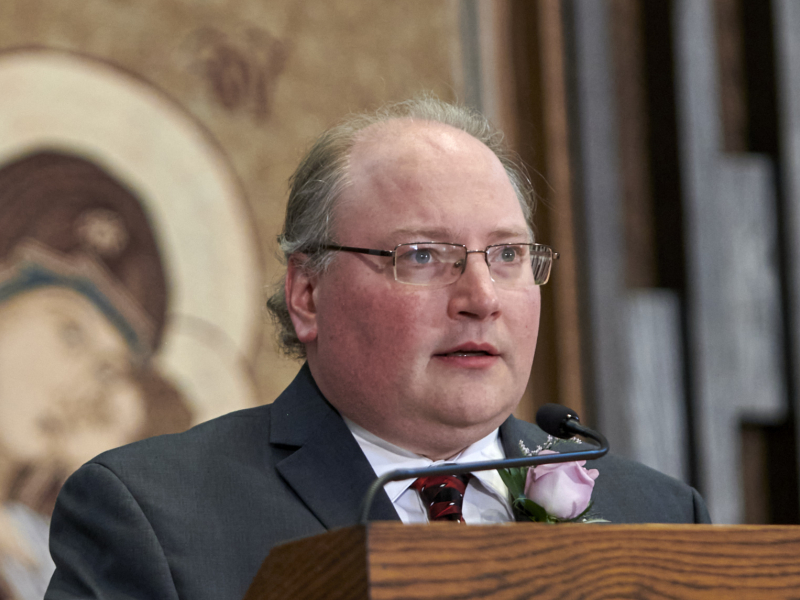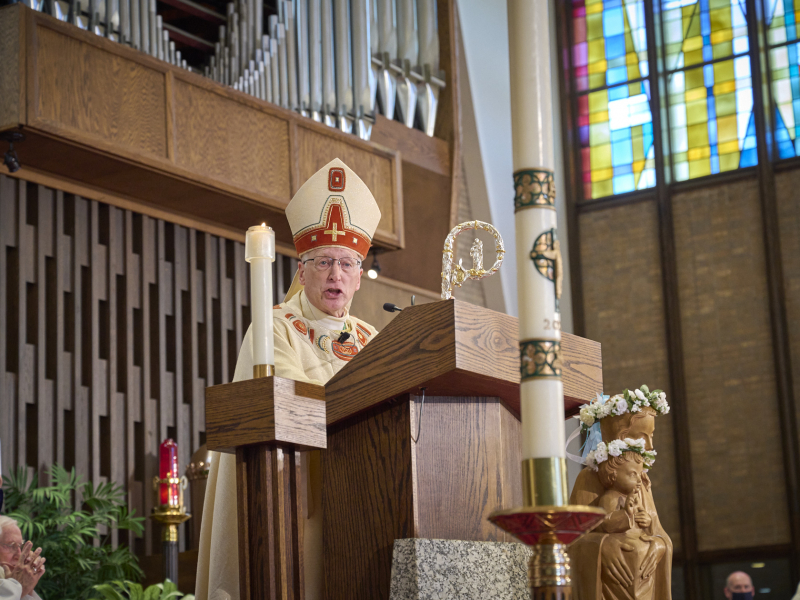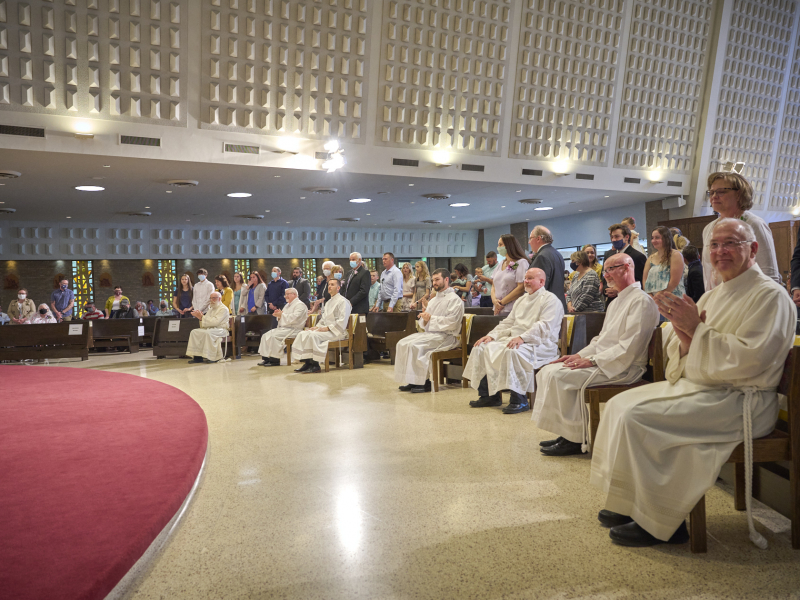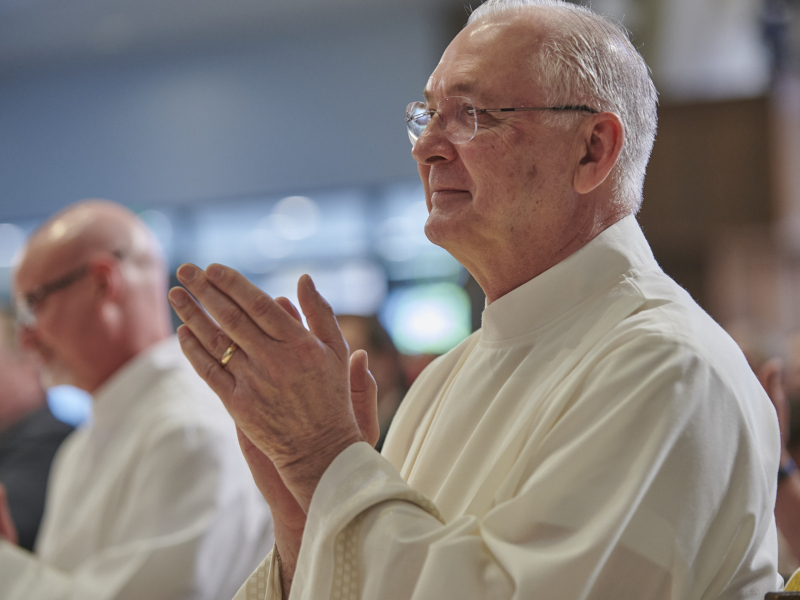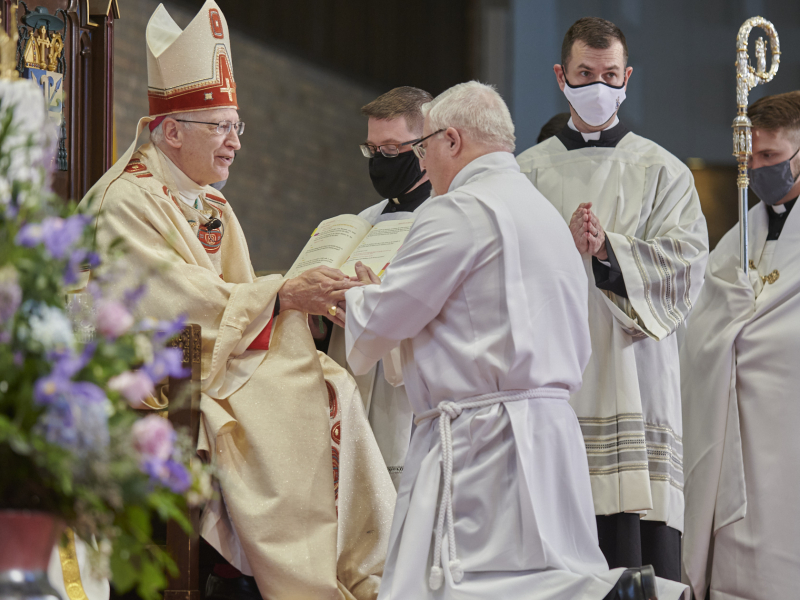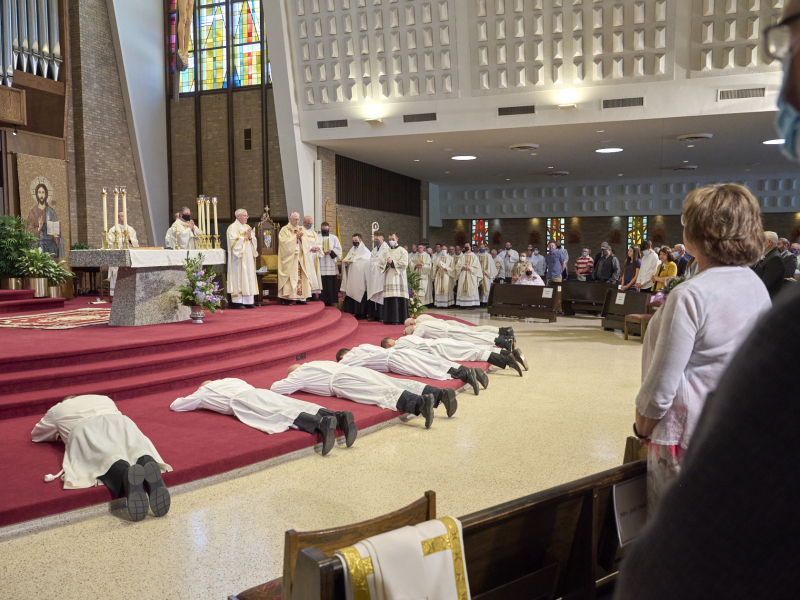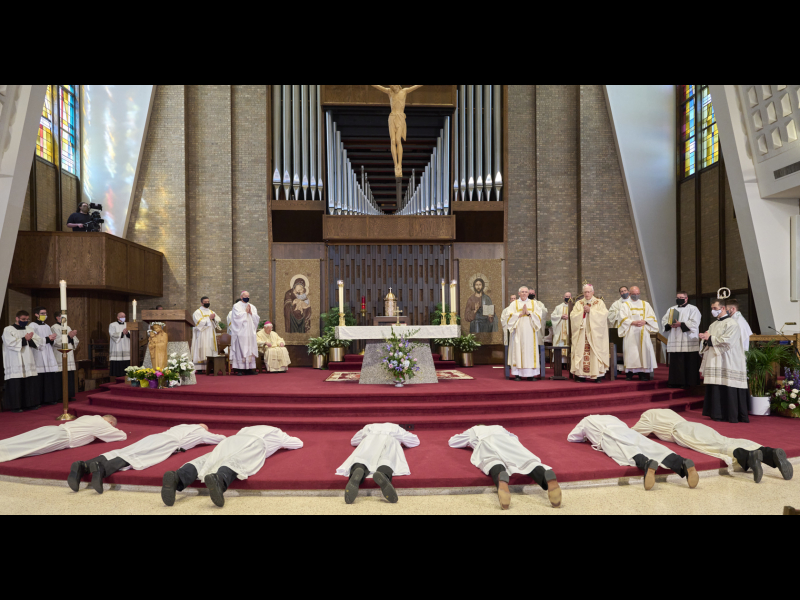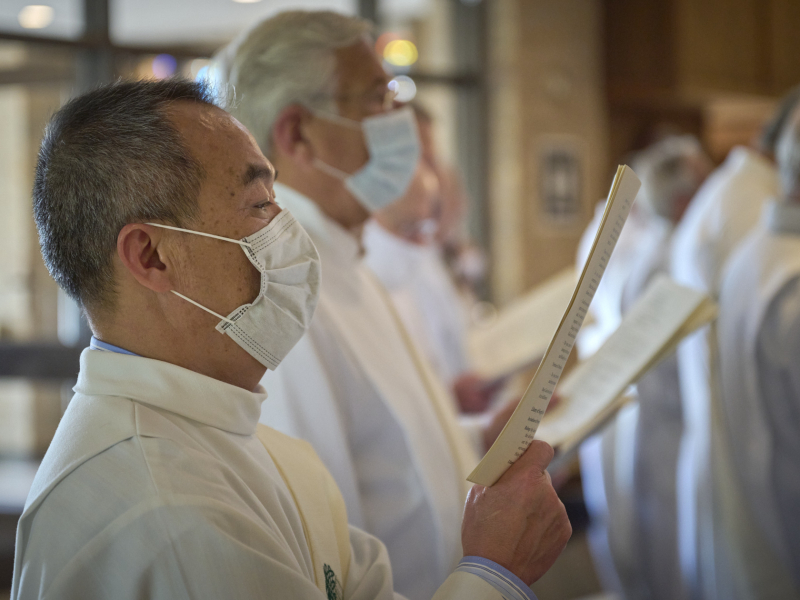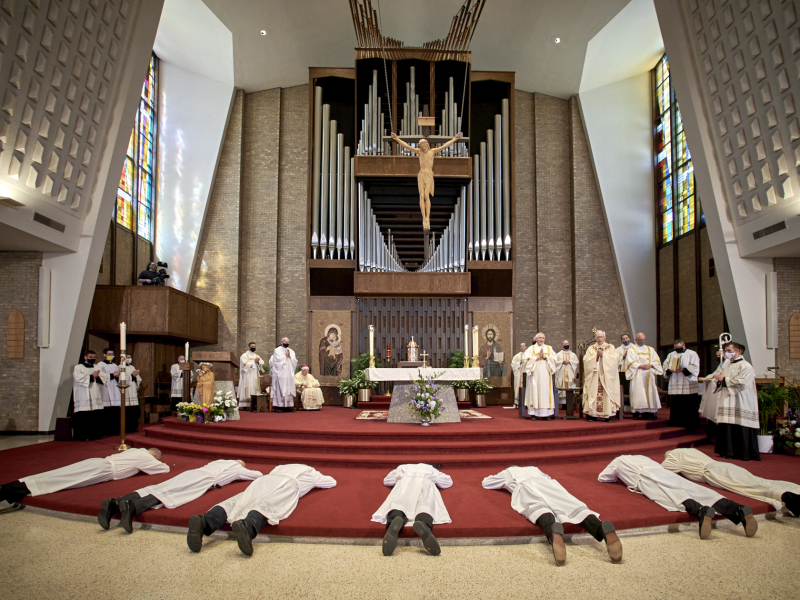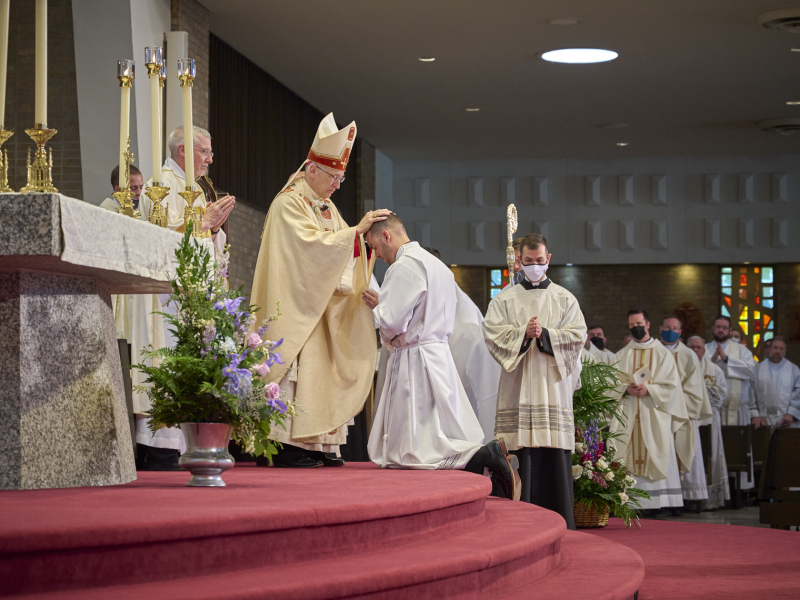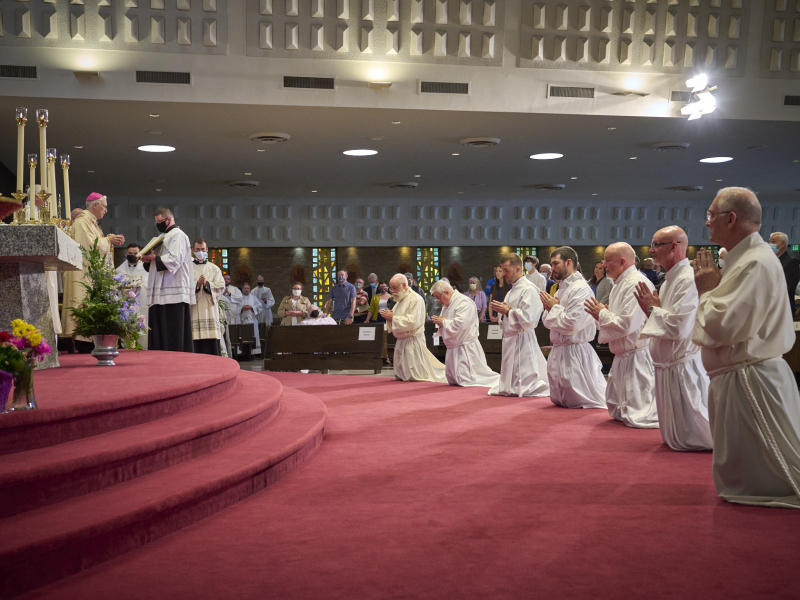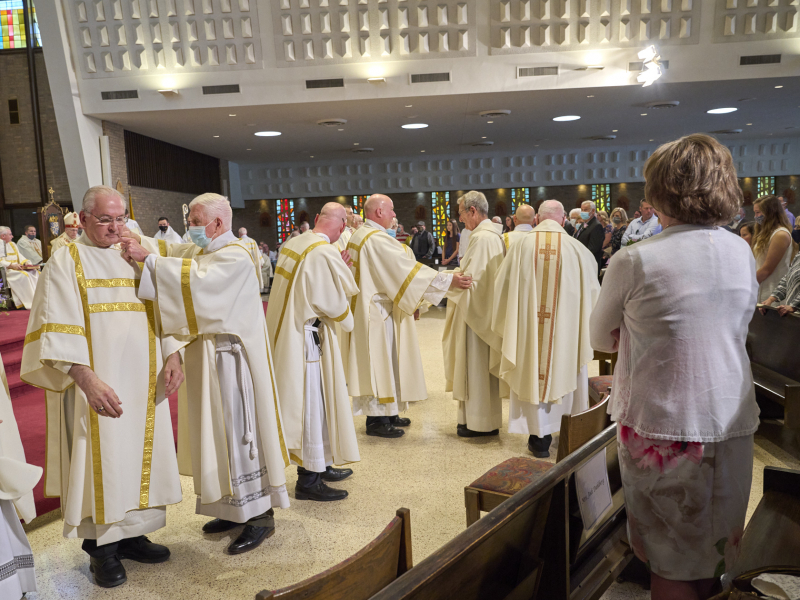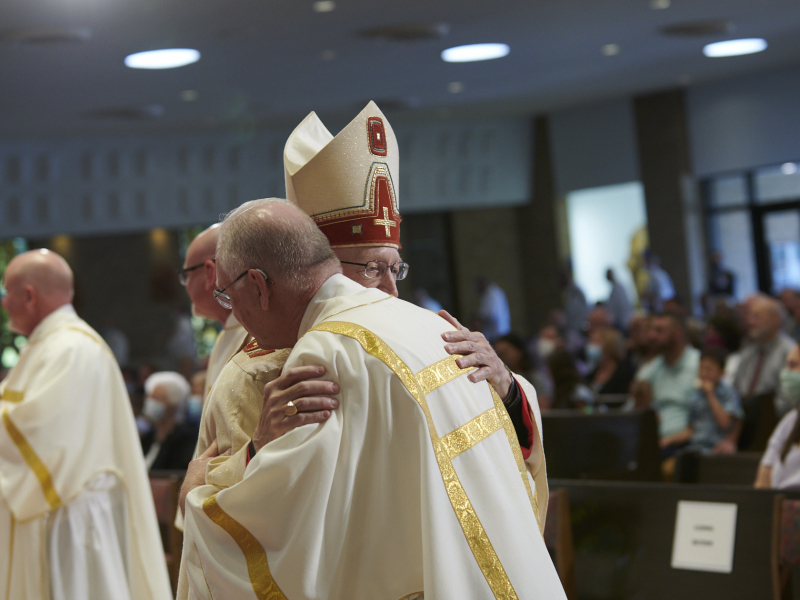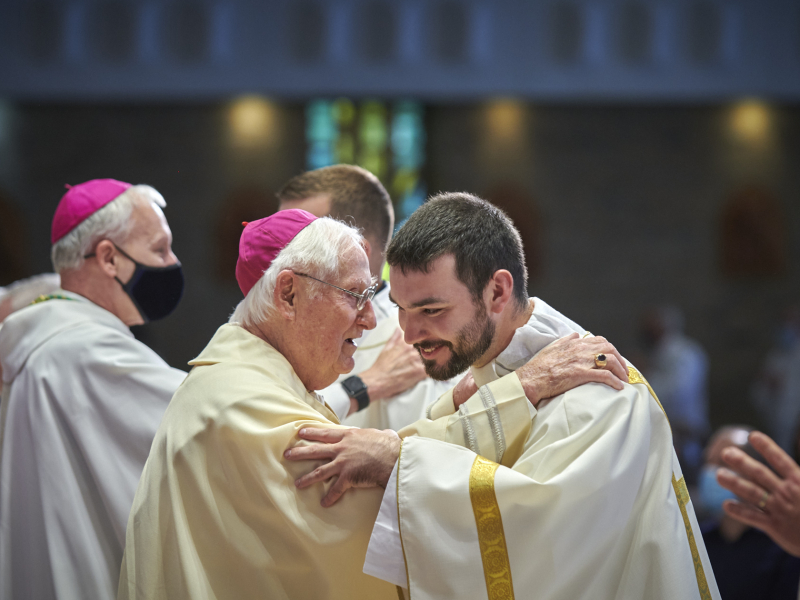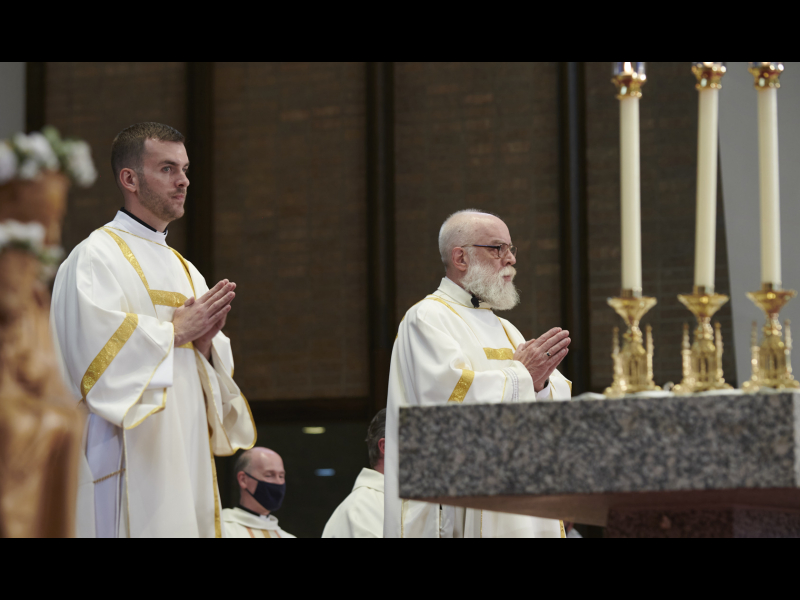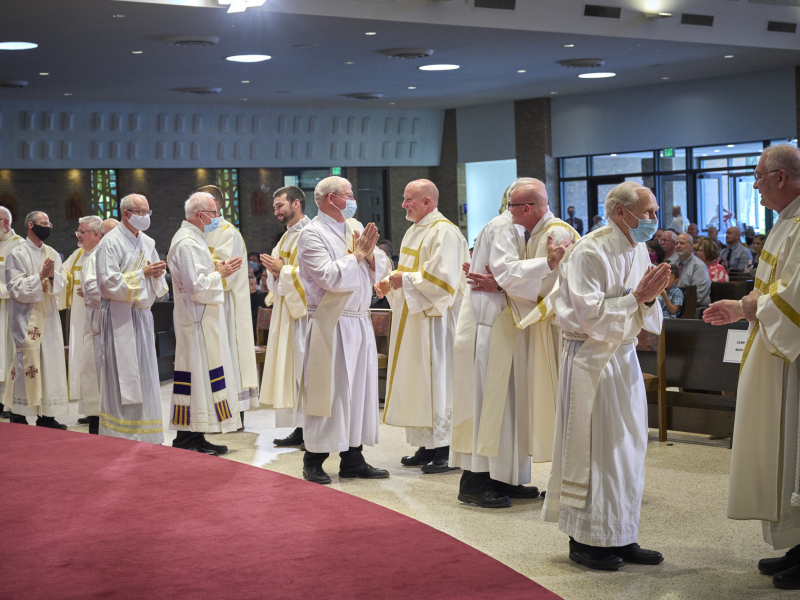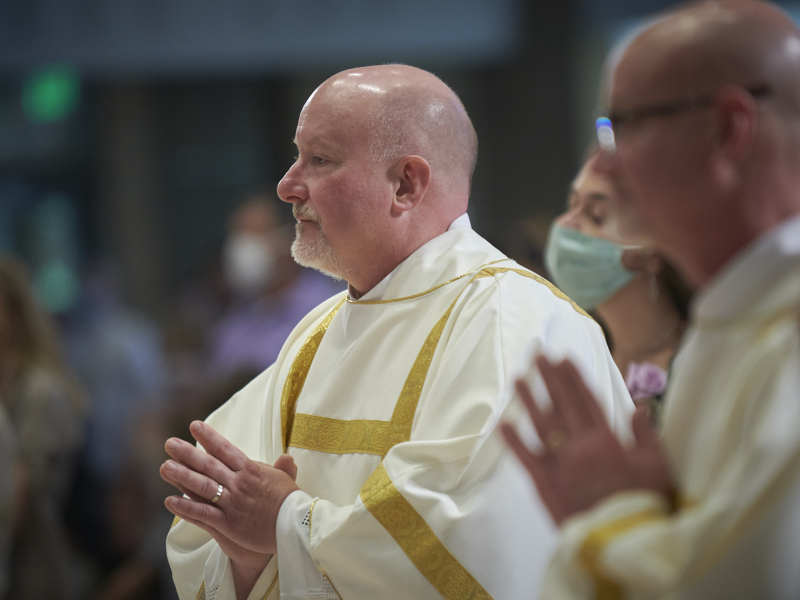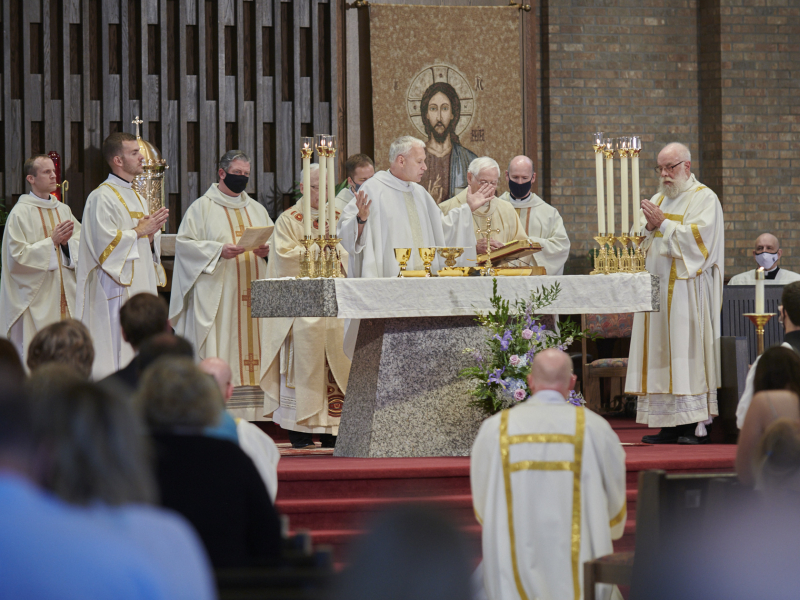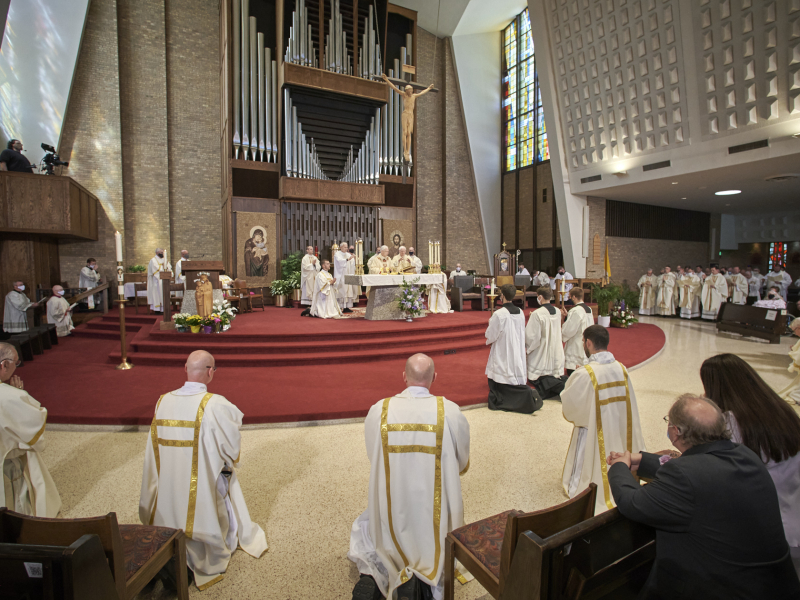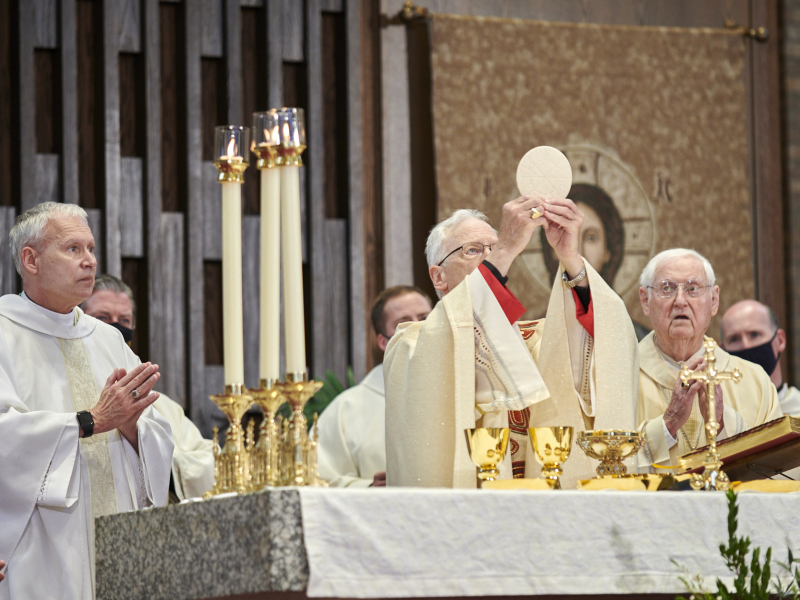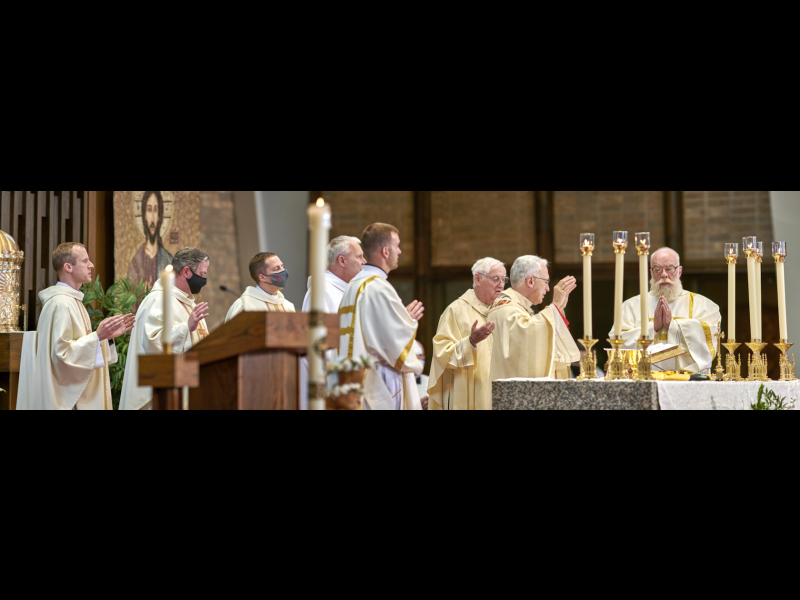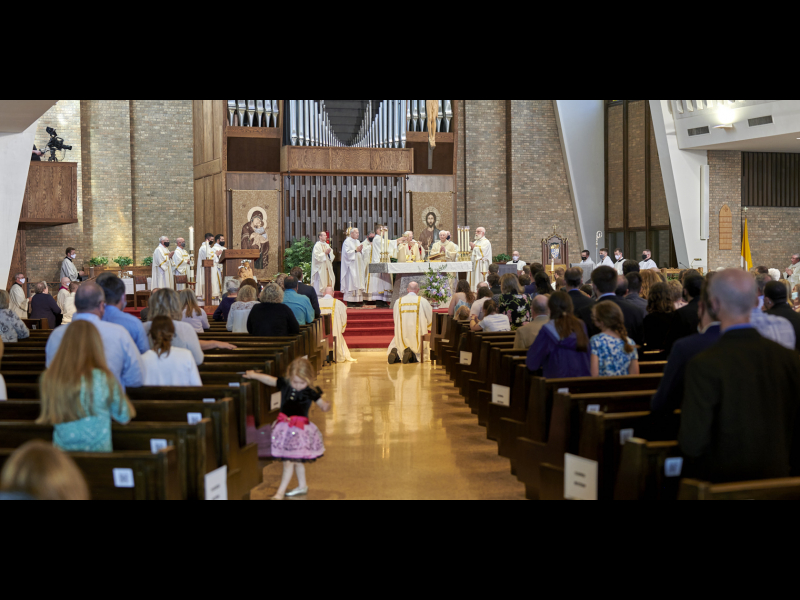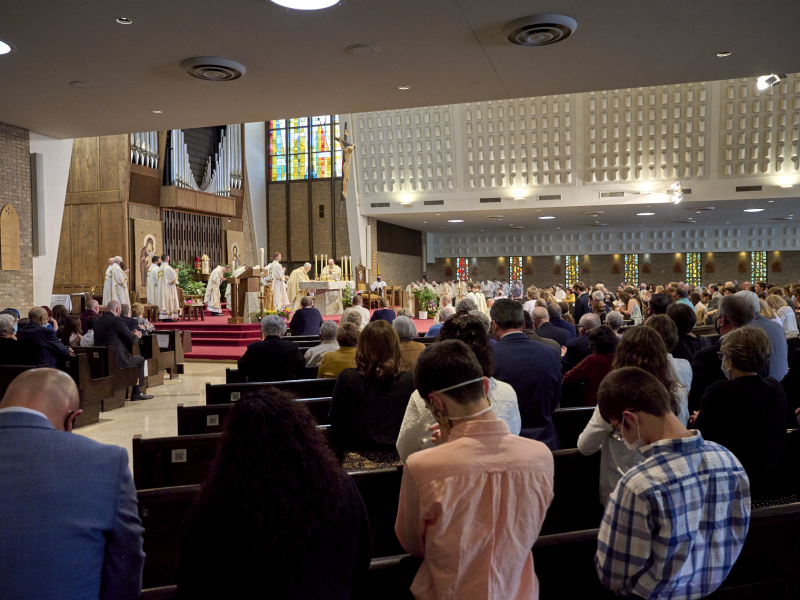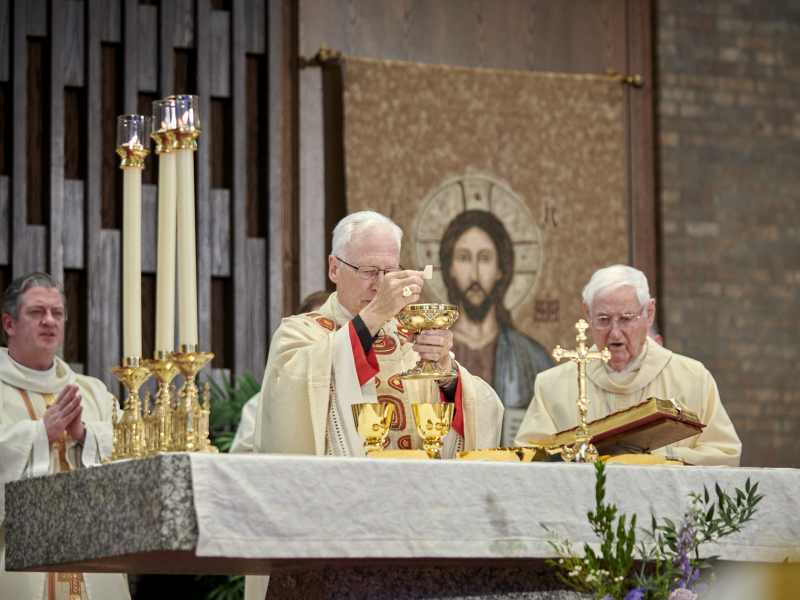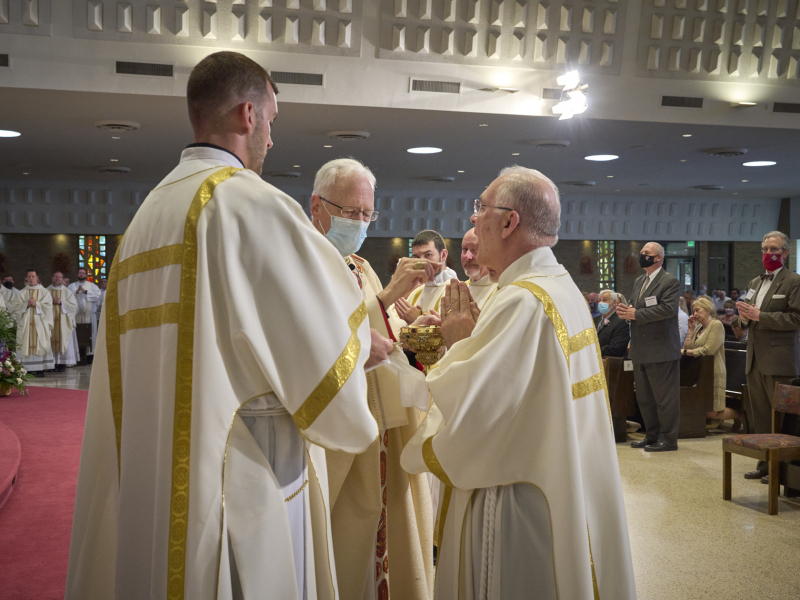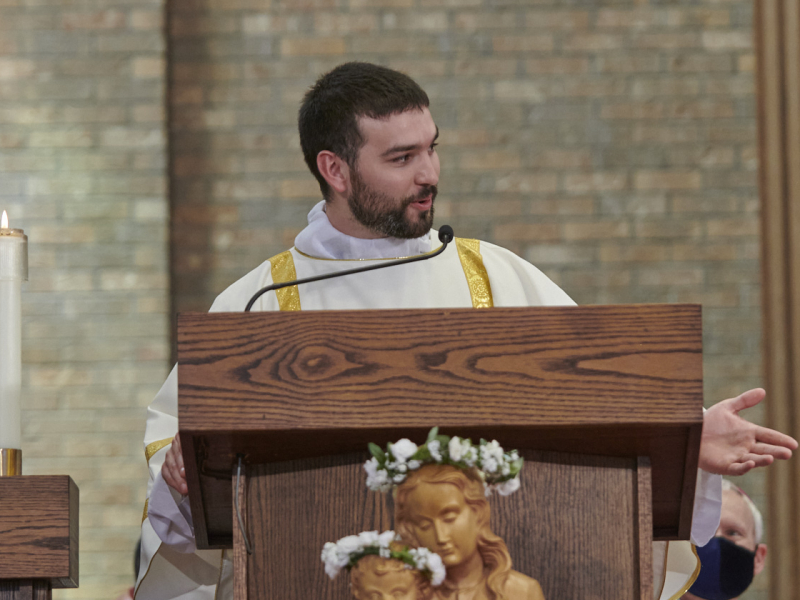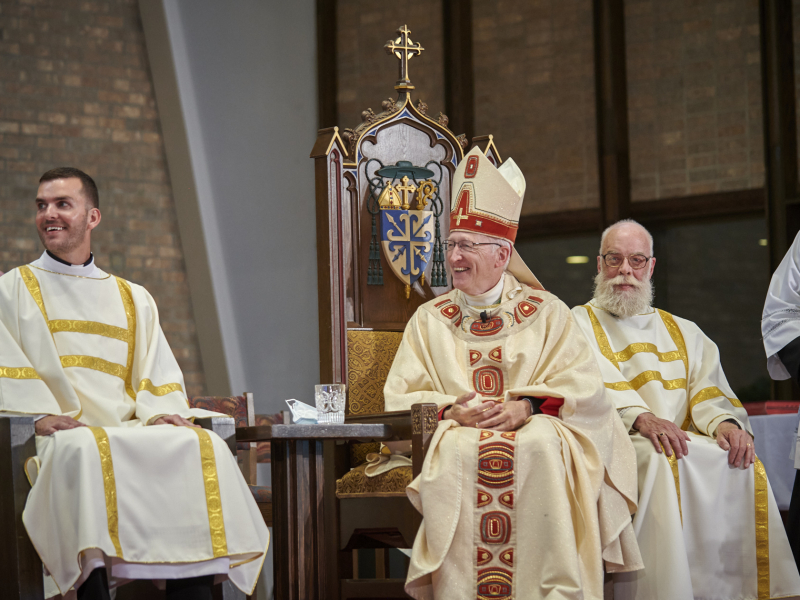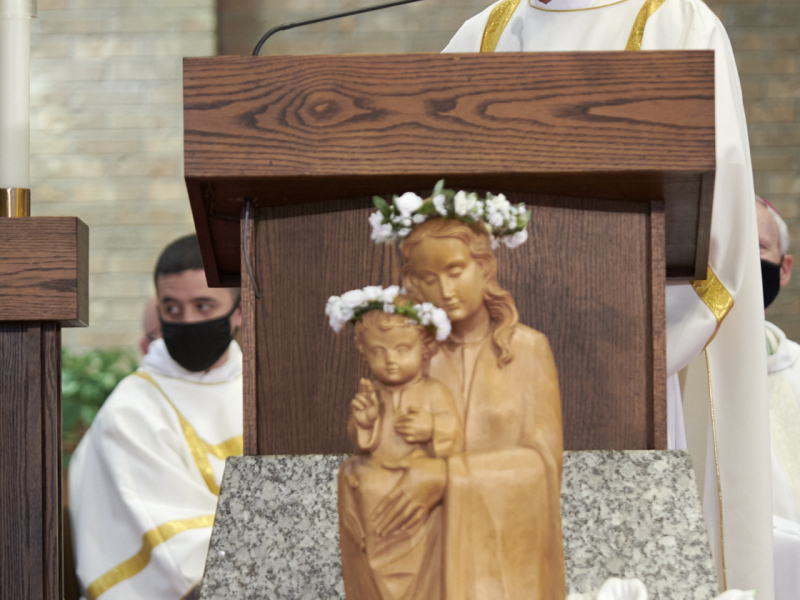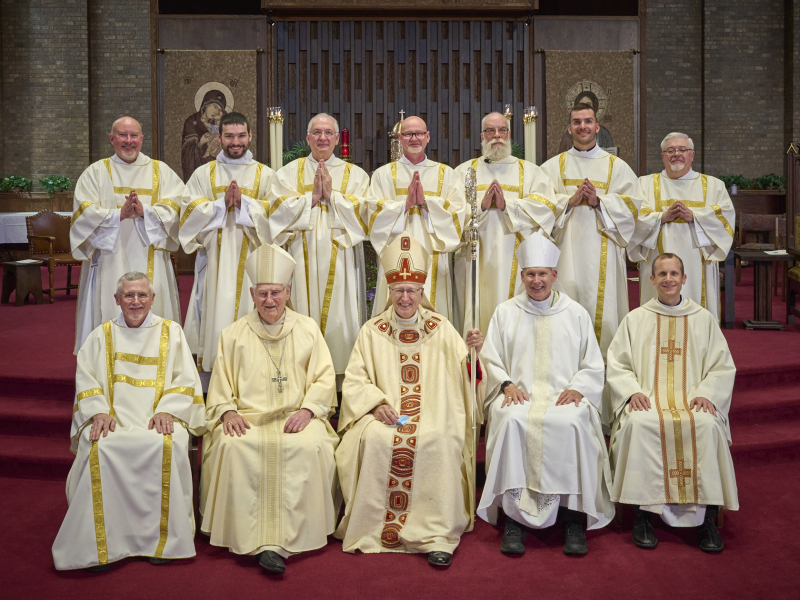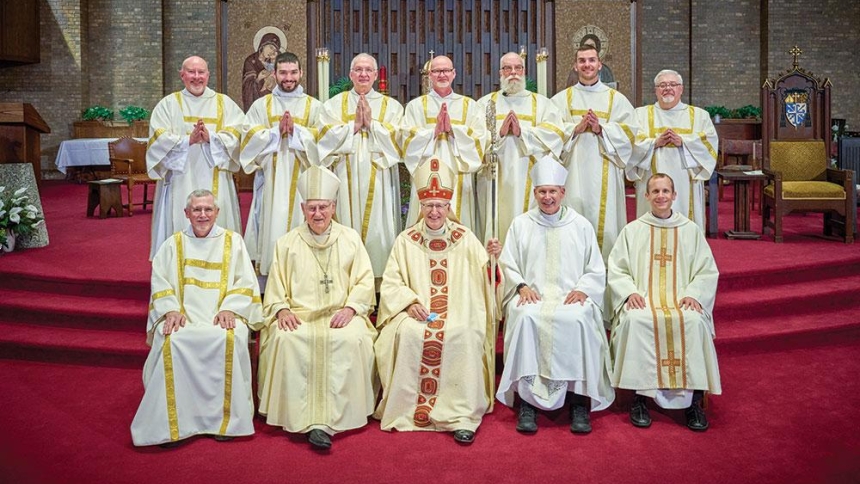
Below are some stunning images capturing some of the key moments from Saturday’s ordination to the diaconate of seven men from across the Diocese of Lansing. The photographer is Tom Gennara. Thank you, Tom.
“You, my brothers and sons, you are known and loved, you are chosen and dedicated, and today you are appointed,” said Bishop Earl Boyea in his homily directed towards the seven ordinands, May 15.
“At the end of all, my sons and brothers, we only want to hear the words of the Father, ‘Well done, good and faithful servant, enter into the joy of your Lord’. God bless you all.”
The ordination ceremony took place at Saint Thomas Aquinas parish in East Lansing. The principal celebrant was Bishop Boyea.
Five men were ordained to the permanent diaconate: Deacon Todd Dahlberg from Saint Rita, Clarklake; Deacon Mark Danaho from St Pius X, Flint; Deacon Richard Freedberg from Queen of the Miraculous Medal, Jackson; Deacon David Hammer from St Elizabeth, Tecumseh; and Deacon Chester Pesmark from St Patrick, Brighton.
Meanwhile two men were ordained to the transitory diaconate meaning that, Deo volente, they will go onto be ordained to the sacred priesthood. They are Deacon Tyler Arns and Deacon Peter Ludwig. They are due to be ordained to the priesthood in June of next year.
Deacons can baptize; proclaim the Gospel; preach the homily; assist the bishop or priest in the celebration of the Eucharist; assist at and bless marriages; and preside at funerals. They also dedicate themselves to charitable endeavors, which was often their role in the early Church.
Since the Second Vatican Council (1962-65), the Catholic Church has restored the diaconate as a permanent rank within the hierarchy of Holy Orders as opposed to “transitory” deacons who will, in due course, be ordained to the priesthood. Permanent deacons can be either married or unmarried men. Saint Stephen, pray for them! Below is Bishop Boyea’s homily reproduced in full.
• Homily, Diaconate Mass May 15, 2021 Jeremiah 1:4-9; Acts 6:1-7; Jn 15:9-17; St. Thomas, East Lansing;
Many thanks to the St. Thomas-St. John Parish and the Diocesan staffs for their work in preparing for today’s celebration. Thanks to the choir, servers, lectors, and all others contributing to our celebration today. Thanks to Deacon Randy Desrochers and Fr. John Whitlock and all those involved in their formation, including the professors who taught them. Finally, many thanks to family members who have shared the faith, prayed, and supported these, our brothers. Thanks to the faculty present from Sacred Heart Seminary and to Bishop Richard Spencer of the Military Ordinariate for his presence today.
My dear sisters and brothers, these your husbands and fathers and brothers and sons, are now to be advanced to the Order of the Diaconate. Strengthened by the Holy Spirit, they will assist the bishop and priests in the ministry of the word, of the altar, and of charity always showing themselves to be servants of all. I know you are proud of them; please continue to give them your love and pray for them.
And now my dear sons and brothers, I would have us reflect on our first reading from the prophet Jeremiah. God tells Jeremiah that he knew him even before his parents knew him, certainly before he knew himself. Secondly, God has consecrated him, that is, God has designated Jeremiah for a particular mission to which Jeremiah is to be committed. Finally, God appoints Jeremiah not just to speak to Judah but to all the nations. Let us reflect upon these three elements of what we celebrate today, your ordination to the Diaconate.
What we know of ourselves and what others know of us can be, at times, limiting. The parameters of our abilities seem written in terms of what we have experienced or what others have seen in us. God will have none of this. God knows us better than we know ourselves. And it is not so much that God assesses our capabilities. Rather, God calls us to a mission because that is his will. And he knows what he can accomplish within and through us. This is all because God has made us for himself. His knowledge of us is an empowering knowledge, a knowledge of what role we play in the divine plan. Thus, Jeremiah quite naturally raised objections to this knowledge of God. He claimed just as we often do, “I know myself better than you do, Lord, and I am unable to do this.” Now, Jeremiah was not originally from Jerusalem and was probably viewed as an outsider and perhaps saw himself as such. What could he possibly bring to this task in order to achieve God’s will? Yet, God has known him and knows him still. And this is what God has chosen for his servant. My brothers, there is every reason under the sun for us to object to this calling and probably even more reasons for those around us to object to us doing so. None of that matters, for God knows us and has chosen us and that is enough. That is why Jesus calls you, “friends,” and sees you as the object of the Father’s love. God’s love of you and his choice of you cannot be wrong.
God then tells Jeremiah that he is consecrated. Usually what this means is the something or someone is set apart, designated as holy, which by its very nature places a real commitment on the part of the one so designated. Nonetheless, it is a commitment which is filled by God’s own holiness. Those consecrated are being conformed to God and to his holiness. We become not merely set apart by this action, but become different for we are really able to be that which God has deemed us to be. He makes us like himself, his very own. This has a profound implication for our ministry just as it did for Jeremiah. If God’s own holiness was viewed by Judah at the time of Jeremiah as contrary to the way the king and the leaders wanted things to be, how much more today do we find God’s ways are not our ways. Our being different does not just mean we are different from what we were before, but we are truly different from a culture and world which does not manifest the very holiness of God. This was a cross for Jeremiah as it was for Jesus and as it will most definitely be for us as well.
Finally, Jeremiah was appointed a prophet, not just to Judah but to the nations. Perhaps, in a strict sense, you are not being appointed prophets, though, indeed, all the baptized are prophetic. Still, as Jeremiah was a man of the word or of many words, so you are being appointed as well to use words. As ministers of the word, there is no way that we can ever determine that people will have ears to hear us. However, we must make sure that at least WE have heard what it is that we are saying. Preach first to yourself; let yourself be challenged by the powerful word of God. Then that word will never be empty even if, as Jeremiah experienced, no one heeds what you may say. Another aspect of this ministry is that Jeremiah was given words to build up and to tear down. My read on this is that it is always the same word which achieves both of these ends. We intend by our words to build up, to lift up, to point to salvation in Christ. Some may reject this, but such is never our aim nor it is the aim of God, the one “who desires all to be saved” (I Tim 2:4). Thus, our appointment is a noble one, one which seeks salvation of souls, and we are to give that our all, making sure that we have heard the word such that our words are not betrayed by our lives.
You, my brothers and sons, you are known and loved, you are chosen and dedicated, and today you are appointed.
And to those of you who will exercise your ministry committed to celibacy, which, as you all know, could apply to any one of you in the future, know that celibacy is the gift God provides you and the Church as you live as Jesus lived, totally for the sake of the Kingdom of God.
At the end of all, my sons and brothers, we only want to hear the words of the Father, “Well done, good and faithful servant, enter into the joy of your Lord.”
God bless you all.

